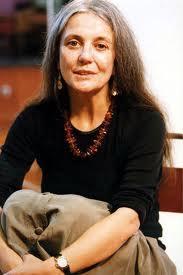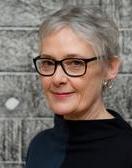失败是成功之母
Shībài shì chénggōng zhī mǔFailure is the Mother of Success (a Chinese Proverb)
Last week Anne Enright, Booker Prize-winning wonderful writer, gave one of BBC Radio 4′s The Value of Failure programmes. Sadly they’re no longer available to listen to again, but I’ll do my best to convey the essence of what she said. She talked about the FAIL BETTER Exhibition at the Science Gallery at Trinity College, Dublin (until 27 April). It’s an exhibition of ‘Beautiful, Heroic and Instructive Failures’ whose title is taken from Samuel Beckett‘s Worstward Ho (1983):
Ever tried. Ever failed. No matter. Try again. Fail again. Fail better.
She didn’t talk about Thomas Edison who, when asked how it felt to have failed one thousand times before he invented the lightbulb, said:
I didn’t fail one thousand times. The lightbulb was an invention with one thousand steps.
But she was talking about him really, even though she didn’t mention him by name (his words about failure leading to success, and those of many other eventually successful people who refused to give up, are collected here). Failure in this context is only failure if you fail to pick yourself up, dust yourself down and start all over again. Here are some things she did say:
Failure is mostly an emotion, and writing a novel requires that you manage that emotion.
And:
You have to fail for at least five years [or] all your life [perhaps] … in order to write books.
But if you’d heard her, you wouldn’t have heard despondency in her voice. Or self-pity or anything other than a writer talking honestly about how it feels to write novels. How, for instance, ‘If you’re at your desk then the muse knows where to find you.’ (I loved that. No need to do anything other than turn up at your desk and stay there. But this, as any writer will know, is sometimes the very hardest thing in all the world to do.) How we often write slightly failed resolutions to what, in our heads and in our hearts, were perfect ideas; how the difficult thing is to keep yourself vulnerable and true and how tiring that can be, but if you don’t your novel will be the worse for it. How the true purpose of a novel is to be itself and that a good novel is one that requires to be written and how, along that path of requirement, you will often feel you have failed.
Her words were filled with warmth and humour, but most of all they were full of the knowledge of how it is to write and that to fail is not to fail (as long as you pick yourself up). To fail is central to the process of successful writing. Learning to manage failure is the key to success; learning to manage that emotion called failure (I’ve never thought of failure as an emotion before, but it feels absolutely right); learning to manage that time when you’re convinced – because the novel’s not going at all well – that not only can you not write this particular novel any more (ever again) but – if you’re me – you go global: because you can’t write this part of this particular novel (today) you can’t write anything at all (for all time), let alone all the other things you can no longer do because you can’t write. Name anything you’ve failed at and continue. It’s simple, you just say, ‘And because of that I can’t … ; and because of that I can’t … ; and because of that I can’t … .’ Ad infinitum.
Some more of Anne Enright’s wise words:
I don’t do inspiration or creative blocks. I just do work and hope for the best [and] … if it’s a real book written for the right reasons [not for money, fame or any reason other than that it is a book that must be written] then it will find its time and its readers. It’ll be its own kind of success.
And the things I’d like to have made, this month, in a parallel universe where all things are possible, are the poems of Paula Meehan,  Ireland’s Poet Laureate or, as they say: Ireland Professor of Poetry. I’d love to think and write as she does, with her fluency (although I’m sure it’s hard won) her honesty and her distilled clarity. I heard her on 7 March at London’s SouthBank Women of the World Celebration in an astonishing reading by all five, female, Celtic Poets Laureate of these islands. One of the poems Meehan read (I’m still hunting it down otherwise I’d quote its title here, but I think it comes from a collection called Dharmakaya) has a line in it about mending the broken things within us. I sat very still when she spoke those words because I’ve just begun the composting process of what I hope will eventually become my fourth novel and, in the few (very few), notes I’ve written so far, the Mender of Broken Things is the foremost.
Ireland’s Poet Laureate or, as they say: Ireland Professor of Poetry. I’d love to think and write as she does, with her fluency (although I’m sure it’s hard won) her honesty and her distilled clarity. I heard her on 7 March at London’s SouthBank Women of the World Celebration in an astonishing reading by all five, female, Celtic Poets Laureate of these islands. One of the poems Meehan read (I’m still hunting it down otherwise I’d quote its title here, but I think it comes from a collection called Dharmakaya) has a line in it about mending the broken things within us. I sat very still when she spoke those words because I’ve just begun the composting process of what I hope will eventually become my fourth novel and, in the few (very few), notes I’ve written so far, the Mender of Broken Things is the foremost.

